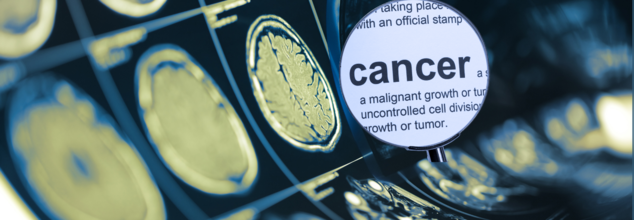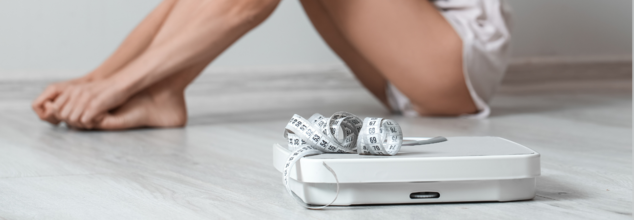- Health Conditions A-Z
- Health & Wellness
- Nutrition
- Fitness
- Health News
- Ayurveda
- Videos
- Medicine A-Z
- Parenting
- Web Stories

Credits: Canva
What Is Medical Gaslighting? Explores A New Study
By now, thanks to social media for awareness and therapy, which is now more accessible, everyone must know what gaslighting mean. For those who don't, it is a form of emotional abuse that involves a person manipulating another to question their reality, thoughts, and feelings. This happens when someone makes you feel that your problems are not real, and it makes the victim doubt their own instincts and perception.
However, what's more is that it even exists in the medical field. Yes, you read it right. There is a concept called medical gaslighting. This term has also gained quite a traction in the recent years and describes the experience of being dismissed, disbelieved, or having health concerns reduced to factors like weight, hormones, or mental health. This term may feel new, however, this phenomenon has been affecting patients, especially women and minority groups for decade. It is because science mostly studied men, that too, not diverse groups, putting women and people or color more at the risk of feeling medically gaslit.
What is Medical Gaslighting?
The University of Windsor worked with Canadians to know more about their experiences and stories of medical gaslighting. Katrina Dobson, a Canadian woman, is all too familiar with this issue. Diagnosed with chronic illnesses like Eagle’s syndrome, hypermobile Ehlers-Danlos syndrome, and mast cell activation syndrome, Katrina recounts harrowing experiences of medical gaslighting that nearly cost her life.
In one instance, after experiencing a severe allergic reaction, she was left waiting in a hospital for hours while her throat began to close. Even after being seen, a nurse questioned whether her reaction was genuine, accusing her of purposefully ingesting walnuts.
Another time, hospital staff called her husband to confirm her need for a breast pump, doubting her word. “It was completely dehumanizing,” Katrina’s husband, Landon, said.
By definition, medical gaslighting occurs when healthcare providers fail to take patients' concerns seriously, leaving them feeling invalidated and ignored. This can also lead to delayed diagnoses, improper treatment and also life-threatening situations.
Can it have impacts beyond health?
For another victim, Katrina, the study notes, medical gaslighting does not just mean physical impact, but also erodes self-confidence and mental well-being.
“I started doubting myself,” Katrina shared. “I was made to feel like a hypochondriac, like it was all in my head. It’s gotten to the point where I avoid seeing doctors, which isn’t healthy for anyone.”
Researcher Marissa Rakus from the University of Windsor explains this is a common outcome. “Medical gaslighting often leaves patients feeling anxious, depressed, and isolated. It can even cause trauma.”
This is a systematic problem
As per Rakus, medical gaslighting comes from the systematic issues in healthcare, rather than actions of individual doctors. “The medical system was historically designed by men for men,” Rakus explains. “Women weren’t even included in medical trials until the 1990s, which is shockingly recent.”
The lack of inclusivity in research is what leads to such a problem.
The Way Forward
Medical gaslighting is a critical issue that demands attention from both patients and the healthcare system. By sharing experiences, advocating for systemic change, and fostering collaborative doctor-patient relationships, progress can be made.

Cancer Before Age 50 Is On The Rise, New Study Lists Which Types
Cancer is often seen as a disease that primarily affects older individuals. After all, the average age of diagnosis is 66, and the risk of developing cancer rises steadily with age. However, a disturbing trend is emerging: more young adults are being diagnosed with cancer before the age of 50. This article explores this shift, its potential causes, and the types of cancers that are rising in younger populations.
In the United States, cancer is diagnosed in fewer than 25 out of every 100,000 people under the age of 20, and it accounts for just 1 percent of all cancer diagnoses, according to the National Cancer Institute (NCI). By the time individuals reach the ages of 45 to 49, the incidence of cancer jumps to about 350 cases per 100,000 people. This rate almost triples to 1,000 cases per 100,000 in people 60 and above. Nevertheless, researchers now notice a concerning trend—a rise in the number of cancer cases being diagnosed in young adults, especially those below 50.
A new research by the NCI shows an in-depth analysis of early-onset cancers in the US. The research, which spanned over 2 million cases diagnosed between 2010 and 2019, revealed substantial increases in certain forms of cancer among younger individuals. Breast, colorectal, kidney, and uterine cancers were identified as the top drivers of this increase. Of the 33 cancers examined, 14 had increasing rates in at least one younger age group, with 63% of these early-onset cancers being in women.
The NCI's report compared cancer incidence in 2019 with what could have been anticipated from the rates in 2010. The results are worrisome:
Breast Cancer: The biggest proportion of the increase was seen in breast cancer, with approximately 4,800 extra cases in young adults compared to what could have been anticipated.
Colorectal Cancer: There were 2,000 more than anticipated cases of colorectal cancer.
Kidney Cancer: 1,800 more cases of kidney cancer were diagnosed.
Uterine Cancer: Uterine cancer diagnoses went up by 1,200 cases.
Interestingly, even as the diagnosis is on the increase, the mortality rates for the majority of cancers among young people have not actually increased. There were, however, sharp increases in the mortality rates for colorectal, uterine, and testicular cancers among the young population.
Why Is This Happening?
The causes of this rise in early-onset cancer are multifaceted and complex. Although more study is required, a number of theories have been put forward by specialists in the field:
Obesity: Obesity has been associated with a heightened risk of various cancers, including uterine and colorectal cancers, for many years. As obesity continues to increase, it could account for some of the rises in cancer diagnoses among young individuals.
Advances in Detection of Cancer: Enhanced screening techniques and shifts in guidelines for early detection may be contributing. These advances have resulted in increasing numbers of cancers being detected at an earlier stage, which may be contributing to the increase in diagnoses.
Delayed Childbearing: For women, delayed childbearing is linked with an increased risk of breast cancer. Pregnancy and lactation have been shown to decrease the risk of breast cancer, therefore delayed pregnancies might be adding to the increase in cases among younger women.
Environmental and Lifestyle Factors: Greater exposure to carcinogens, either through pollution, chemicals, or lifestyle choices, may also be affecting cancer rates among young people.
What Kinds of Cancer Are Increasing?
While the rate of cancer for some cancers in older individuals is decreasing, young people are experiencing more cases of certain cancers. The greatest increases have been seen in the following:
Breast Cancer
This cancer is among the most prevalent cancers of younger women, especially those under the age of 50. A concerning trend that has been seen is an increase in more aggressive subtypes of breast cancer, including triple-negative and HER2-positive breast cancers. These cancers are harder to treat and have poorer prognoses.
Colorectal Cancer
Previously viewed as a disease of predominantly older individuals, colorectal cancer is becoming more prevalent among young people. Early-onset colorectal cancer is specifically of concern because it is often diagnosed at later stages when it is more difficult to treat.
Uterine Cancer
This form of cancer is increasingly found in younger women. Similar to colorectal cancer, the increasing uterine cancer may be a result of the escalating obesity epidemic.
Kidney Cancer
Kidney cancer diagnoses have similarly increased in young adults. While the causes of this are unknown, it is believed that obesity and other lifestyle-related issues may be to blame.
Are Some Cancers Are Decreasing Too?
While there has been an increase in early-onset cancers, it must be added that cancer incidence is falling for various forms in younger age groups. The most significant falls have been observed in lung cancer and prostate cancer.
Lung Cancer: The decrease in lung cancer is, in large part, due to the substantial reduction in cigarette smoking prevalence during the last decades. This has resulted in a commensurate reduction in the incidence of young adults with lung cancer.
Prostate Cancer: The reduction in prostate cancer incidence can be attributed to revised screening recommendations that discourage the routine use of prostate-specific antigen (PSA) testing in young men. This has lowered the rate of unnecessary diagnoses and treatments.
How Are Early-Onset Cancers Different?
The most glaring distinction between early-onset cancers and those that are diagnosed later in life is age. Yet, the aggressiveness of some cancers, particularly breast cancer, is a major consideration. Younger patients tend to have more aggressive types of cancer, which tend to be treated with more aggressive and invasive therapies.
In breast cancer, for instance, younger women will tend to carry genetically caused cancers, like the ones related to BRCA mutation. But again, these genes only explain only 20% of early-onset breast cancer, which points to other genetic or environmental exposures as well.
Can Early-Onset Cancer Be Prevented?
Although it is not possible for anybody to avoid the risk of cancer entirely, some lifestyle choices will minimize the chance of cancer occurrence. According to experts, they include the following:
- Physical activity can lower the risk of developing many cancers, including breast and colon cancer.
- A balanced diet with plenty of fruits, vegetables, and whole grains can reduce the risk of cancer. Reducing processed foods and alcohol consumption is also helpful.
- Smoking is a major cause of cancer, especially lung cancer. Stopping smoking at any age can lower the risk substantially.
- If there is a family history of cancer, it is critical to bring this up with your physician. Genetic counseling and ongoing screening may help detect cancers at an earlier stage, when they are more treatable.
- Early awareness of cancer signs and symptoms is key. Regular check-ups and screenings, like mammograms and colonoscopies, can detect cancers before they become problematic, enhancing the potential for effective treatment.
Although the increase in early-onset cancers is distressing, it is also an urgent call for more research. Researchers need to work towards establishing the root cause of this surge, especially for cancers such as breast, colorectal, and uterine cancers. Through the discovery of the drivers behind these trends, we can then create better prevention methods and treatment options, improving the prognosis of younger cancer patients.
The growing number of cancers occurring before the age of 50 is an important public health issue that must be addressed now. Although certain cancers are decreasing, others are increasing, and it is imperative to keep monitoring and studying these trends to promote a healthier tomorrow for everyone.

Credits: Canva
Teen Dies After Months On Extreme Water-Only Diet; Symptoms And Risks Of Anorexia
An 18-year-old Sreenanda from Kerala, India, died after months of adhering to a radical water-only diet based on videos from YouTube. Her treating doctor, Dr. Nagesh Prabhu, said the teenager had anorexia nervosa, a serious eating disorder, which went un-diagnosed and un-treated until it was too late.
Despite having been put on a ventilator during her last days, the extended deprivation of nutrients had already done its permanent damage- malnourishment, a significantly reduced stomach and esophagus, and near-critically low sodium and blood sugar levels that were impossible to correct through medicine.
This tragedy is not only a local news item. It is symptomatic of a spreading, international public health and mental health issue—how eating disorders such as anorexia are misperceived, dismissed, and compounded by online misinformation and social pressure.
What Is Anorexia Nervosa?
Anorexia nervosa is not just a diet that has gotten out of control—it is a severe mental illness with potentially life-threatening results. People with anorexia usually develop a distorted view of their body and an extreme fear of gaining weight, even when they are underweight or starving. This psychological disorder results in restrictive eating habits, compulsive behavior regarding food and exercise, and, in most instances, the refusal to accept the seriousness of their health.
It impacts both males and females, although it is more common in teenagers, who are more likely to be subject to peer pressure, social media ideals of beauty, and emotional instability during their teen years.
Dr. Prabhu discovered that Sreenanda had started displaying signs of extreme food restriction some six months prior to her death. Her family, however, misunderstood her condition and dismissed it as a characteristic of a typical adolescent. As with most others who suffer from anorexia, she had learned to conceal the severity of the illness.
"Eventually, patients lose the sensation of hunger," explained Dr. Prabhu. "Her sugar and sodium levels had dropped to levels that were uncorrectable. She was starving almost." Compounding the issue was the reach of untested diet content from YouTube, which misledly promoted water fasting as a fast and safe method for weight loss.
This misinformation cost Sreenanda her life—and highlights the risk of unmonitored diets and the need for mental health education surrounding eating disorders.
Symptoms That Should Never Be Ignored
The indications of anorexia are more than physical—they're behavioral and emotional. Symptoms include:
- Severe weight loss or inability to gain expected weight.
- Fatigue, dizziness, and intolerance to cold.
- Swelling of limbs, stomachaches, constipation.
- Insomnia, irritability, and mood swings.
- Obsessive food behaviors—such as skipping meals, eating exclusively "safe" foods, or exercising compulsively.
- Low self-esteem, social isolation, and a strong fear of gaining weight.
- In women, cessation of menstrual periods without the use of birth control.
If the body is starved, brain function also breaks down, making it more difficult for people to realize the extent of their malady. This usually brings with it refusal to seek treatment and an even more precipitous decline.
What are the Risks of Anorexia?
The medical effects of anorexia extend far beyond being underweight. Chronic malnourishment can lead to:
- Anemia
- Bone thinning and bone fractures
- Kidney and liver failure
- Irrregular or slowed heart rate
- Low blood pressure
- Multi-organ failure
- Brain atrophy
- Death from heart-related complications or suicide
As reported by the National Association of Anorexia Nervosa and Associated Disorders (ANAD), anorexia has the second-highest death rate among all mental disorders, only beat by opioid dependence. Eating disorders kill over 10,000 people annually in the U.S., and suicide accounts for 24% of deaths related to anorexia.
Anorexia, when detected and addressed early, is controllable and even reversible through appropriate intervention consisting of nutritional rehabilitation, medical attention, and psychotherapy. The disorder, though, being of a specific kind, means many of its sufferers do not respond to it being addressed. They deny illness, think they remain overweight, or are afraid treatment will compel them to become obese.
Family, teachers, and friends are important in recognizing early warning signs and stimulating prompt medical assistance. Procrastination can be lethal.
Can Anorexia Be Prevented?
Although anorexia cannot be prevented with certainty, professionals concur that encouraging healthy food attitudes, body image, and self-esteem in early life will substantially lessen the risk. This entails:
- Promoting activities and accomplishments unrelated to looks.
- Practicing balanced eating and positive body image within the home.
- Reducing exposure to negative or unattainable beauty standards on the internet.
- Being wary of diet or health fads on social media sites.
In Sreenanda's case, it was a mixture of web misinformation, unresolved mental health issues, and failure of early intervention that led to her death. Her tale serves as a graphic reminder that eating disorders are no phase or a choice of lifestyle—these are life-threatening conditions that need specialized attention.
If you or someone you know is experiencing an eating disorder, get help now. Recovery is possible—with care, understanding, and prompt action.

Credits: Canva
Minimalist Skincare 101: Surprising Benefits Of Doing Less For Your Skin
It's 7 a.m., and your day has barely begun, and yet you're already multitasking with a 10-step skincare regimen of foaming cleanser, toner, essence, serum, eye cream, moisturizer, facial oil, sunscreen and don't even get me started on that jade roller and overnight mask from the night before. Ringing any bells? You're not alone.
With wanting a flawless glass skin and TikTok-driven beauty hacks, skincare has evolved from a self-care ritual into what feels like a full-time job. From the 7-step Korean regimen to multi-layered product cocktails touted by influencers, the pressure to “do it all” is real. We’ve been led to believe that more products mean better skin but what if that’s not the whole truth?
Welcome to the world of minimalist skincare, where less isn’t just more, it’s smarter. This article explores the growing shift away from overwhelming routines toward a simpler, science-backed approach to skincare that actually gives your skin room to breathe. Let’s dive into why doing less might just be the best thing you’ll ever do for your skin.
In a world of complicated 10-step skin regimens, the minimalist skin movement is generating a subtle revolution. While bathroom counters are drowning in cleansers, serums, masks, and exfoliators, an increasing number of consumers are demanding to know: do we really need all of this? Driven by science, sustainability, and healthy skin, minimalist skin presents a healthy, results-based alternative to beauty excess.
What is Skin Minimalism?
Skin minimalism isn't about doing the bare minimum or neglecting something—it's about doing what counts. This emerging philosophy is about stripping back your routine to just a handful of must-do steps, prioritizing quality ingredients rather than quantity. By cutting back, you're giving your skin permission to reset, breathe, and get its natural rhythm back.
Rather than applying five serums and following fad beauty trends, skin minimalists stick to a routine that is consistent, evidence-based. That involves fewer actives, less trial and error, and more faith in the skin's natural capacity to repair and regenerate—if supported correctly.
Dermatologist Dr. Kiran Sethi calls it a "skin-first mindset." “It’s not about less effort, it’s about smarter choices. You’re focusing on what the skin truly needs and avoiding the noise,” she says.
The 3-Step Skincare Routine
At the core of minimalist skincare is the three-step skincare routine: cleanse, moisturize, and protect. These steps support skin health at a foundational level.
1. Cleanse
A mild cleanser wipes away dirt, oil, and impurities without upsetting the skin's own moisture barrier. Harsh detergents and over-washing can cause dryness and irritation, so there is an argument for fewer, milder washes—particularly in the morning.
2. Moisturize
Select a mild, fragrance-free moisturizer appropriate for your skin type. Dry skin types should seek humectants such as glycerin or hyaluronic acid; oily skin types should use gel-based products. Toners are not necessary but must be hydrating and non-irritating if used.
3. Sun Protection
No skincare routine would be complete without sunscreen. A broad-spectrum SPF of at least 30 not only shields against premature aging and sunspots, but also guards your skin against dangerous risks such as skin cancer. Even minimalist routines never omit this step.
A core component of minimalist skincare is skin fasting, or the act of giving up skincare products completely in order to reboot the skin. Similar to the way intermittent fasting affects the body, skin fasting has the ability to rebalance sebum production, curb inflammation, and restore the barrier function.
To begin, you can try eliminating one product at a time and see how your skin reacts. Throughout this reset phase, hydration (internal and external), sun protection, and gentle cleansing are important. When the skin seems more stable and less reactive, you can then gradually add products back in so that you can see what's really working and what you don't need.
Why is Gen Z Getting Attracted Towards Overdoing Skincare?
Ironically, as skin minimalism picks up steam, a lot of Gen Z consumers are going in the opposite direction. Driven by TikTok trends, influencer routines, and a deluge of product drops, young users tend to get caught up in over-layering active ingredients such as retinoids, AHAs, and vitamin C.
While the ideal may be glassy, blemish-free skin, the reality tends to be heightened sensitivity, breakouts, and a weakened skin barrier. As dermatologists note, excessive skincare can disrupt the skin's microbiome, stimulate inflammation, and even cause product dependency, wherein the skin becomes unable to self-regulate.
Minimalist skincare, on the other hand, permits the skin to become more resilient in the long run—without growing dependent on perpetual topical intervention.
Minimalist skincare isn't about abandoning results—it's just about selecting evidence-based, multi-tasking products and treatments that bring real transformation without over-stressing the skin.
Dr. Sethi invokes Profhilo, a filler injectable of hyaluronic acid-based, as excellent proof. "It's not volumizing or changing your face; it's hydrating deeply and rejuvenating from within," she says. Profhilo provokes the production of collagen and elastin with little downtime and no layering—a perfect application of minimalist philosophies.
This is future skincare: not glitzy, not involved, but utilitarian and productive.
Minimalist skincare is also a reflection of larger values of conscious living. With fewer products there is less packaging waste, less environmental pollution, and a more eco-friendly beauty regimen. It streamlines not only physical clutter but mental clutter—making your mornings, your money, and your skincare routine easier.
Instead of seeking quick fixes and the latest trends, skin minimalism is about taking a step back, listening in, and making skincare a mindful ritual.
Is Minimalism Right for Everyone?
Although skin minimalism is suitable for most individuals, especially those with sensitive, reactive, or overburdened skin, it will likely need to be adjusted. Individuals with particular skin issues such as acne, rosacea, or eczema must consult a dermatologist before streamlining too extensively.
The concepts, however intentionality, simplicity, and respect for the skin—are universal positives.
Minimalist skincare is not just a trend it's a revolution for your skin rooted in science, sustainability, and simplicity. In an era where more often equates to better, this movement shows that less really can be more.
Dr Kiran Sethi is a dermatologist and celebrity skin expert with specialisation in Integrative Aesthetic, Founder and Medical Director Isya Aesthetics and the author of Best Seller Skin Sense
© 2024 Bennett, Coleman & Company Limited

